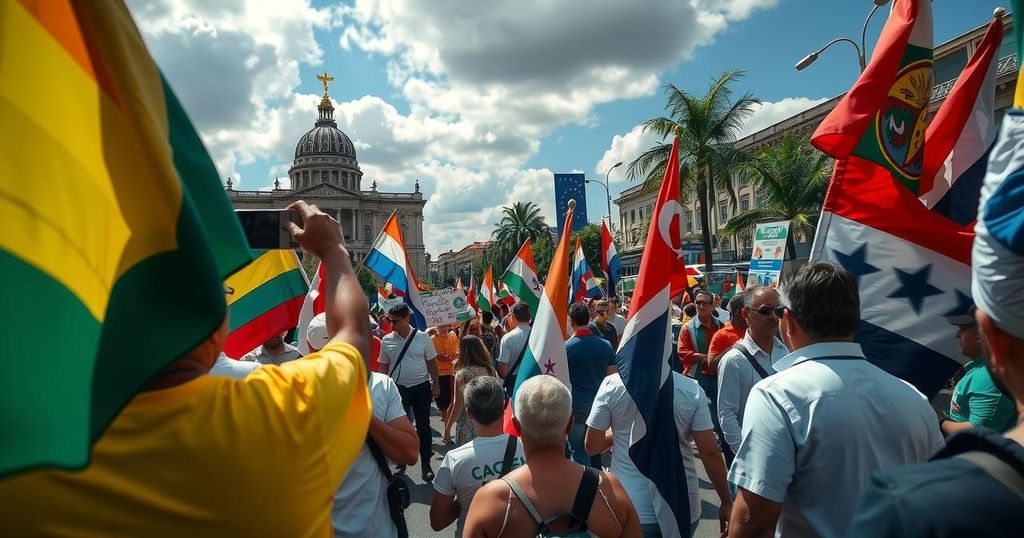Uruguay’s Presidential Run-Off: A Model of Democratic Stability

A presidential run-off in Uruguay featured conservative Alvaro Delgado and leftist Yamandu Orsi, illustrating the nation’s democratic stability amid regional challenges. With Orsi securing 44% and Delgado at 27% in the initial round, the election emphasized economic priorities and mutual respect between candidates, irrespective of the outcome.
In Uruguay, a significant presidential run-off occurred recently, showcasing contrasting ideologies as conservative candidate Alvaro Delgado faced off against leftist rival Yamandu Orsi. This election has garnered attention due to its peaceful atmosphere, standing in stark contrast to the political turmoil experienced in neighboring Latin American countries. The run-off followed a general election in October, where Orsi led with 44 percent and Delgado trailed at 27 percent, necessitating the second round to determine a clear winner.
Both candidates entered the race with firm backing; Delgado is positioned to gain from the supporters of third-place candidate Andres Ojeda of the Colorado Party. Orsi, a history educator at the age of 57, enjoys the endorsement of former President Jose Mujica, whose tenure is noted for its focus on social equity and progressive values. The election, marking a pivotal moment for Uruguay, demonstrated the commitment of both candidates to uphold the country’s tradition of democratic values and peaceful governance.
Candidates emphasized economic recovery, with Orsi advocating for wage increases for lower-income workers, while Delgado aims to enhance bureaucratic efficiency and establish trade partnerships with nations like China. Both candidates have publicly committed to respecting the election results and collaborating regardless of the outcome, underscoring their dedication to maintaining democratic coexistence in Uruguay. Fernando Pereira, leader of the Broad Front coalition, articulated this sentiment, stating, “We must value what we have: democratic coexistence.”
Uruguay is recognized as an exemplar of democratic stability in Latin America, contrasting sharply with the experiences of political unrest and violence seen in other regional nations such as Venezuela and Mexico. The run-off election on Sunday followed an initial general election held on October 27, where none of the candidates achieved an outright majority. Yamandu Orsi’s candidacy represents the leftist Broad Front coalition, while Alvaro Delgado hails from the ruling National Party. This election not only reflects the political landscape but also the socio-economic priorities of Uruguay, demonstrating an appreciation for democratic processes and civil discourse among the electorate.
The recent presidential run-off in Uruguay reflects the nation’s commitment to democracy and civil cooperation in a region often marked by instability. Candidates Yamandu Orsi and Alvaro Delgado, though ideologically distinct, exhibited respect for democratic outcomes and a willingness to collaborate post-election. Such values are essential in maintaining Uruguay’s status as a beacon of democratic stability in Latin America, further highlighted by the endorsement of former President Mujica and the political engagement of voters.
Original Source: www.aljazeera.com






